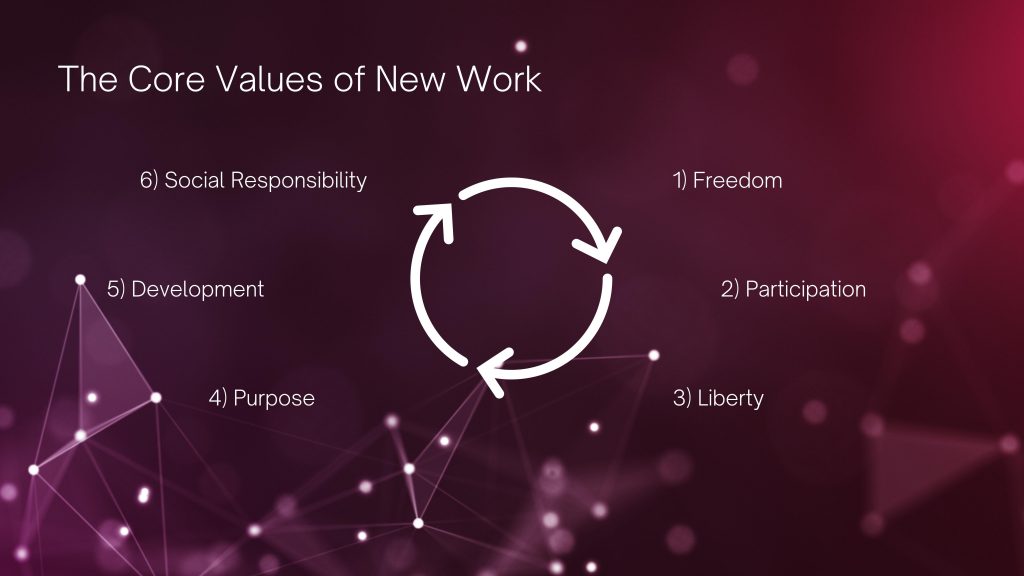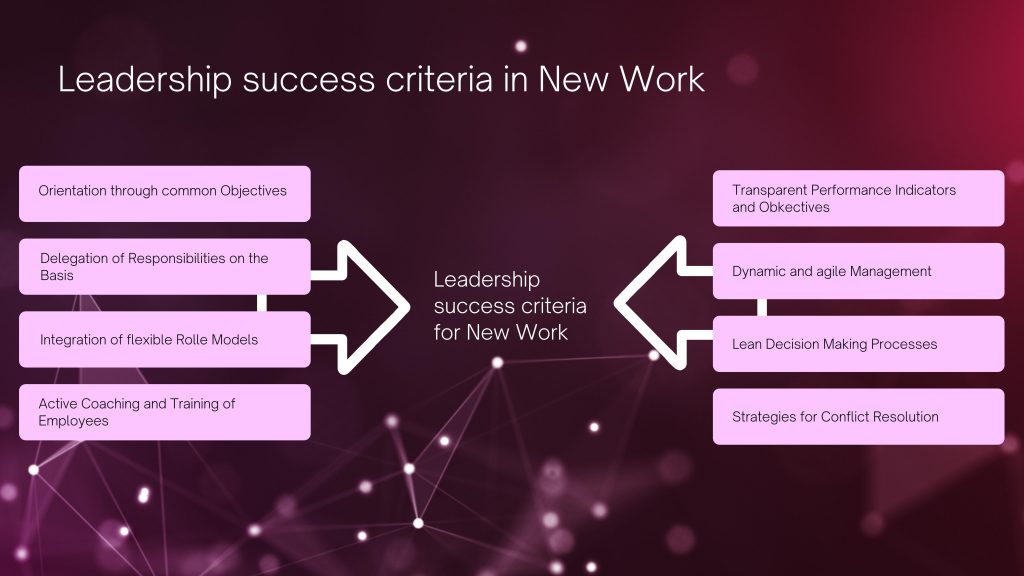Arise from the crisis of COVID-19, traditional concepts like work, organizations, and offices have suffered structural changes.
The development of New Work brings together a series of characteristics that determine the values of the New Work. The core values of this concept are independence, freedom, and community participation. In addition to freedom, this model also integrates other elements such as self-esteem, purposeful profession, development, and social responsibility and awareness.
However, the main idea of New Work lies in creating acceptance communication to create space for motivation, and performance through creativity and self-fulfillment.

The core values exposed in Figure 1 presented above represent what is really important today in the labour market. Leaders and talent acquisition inside organizations need to readapt their methodologies on talent retention, but more important in new talent recruiting since new employees generations demand New Work schemes.
In a post-pandemic scenario, organizations should question: How can companies design their work processes flexibly? How do organizations arrange remote workplaces and meet efficiency? Crisis pop-up this questions, New Work model can have an answer to them.
New Work is characterized and mostly described by the new trends in the agile laboral market today which include:
- Flexible schedules (part-time, flex-time, trust-based, result oriented, etc).
- Workplace flexibility (e.g. remote office, home office, hybrid).
- Collaborative work (including team building).
- General flexibility of structures (e.g. cross-functional communication channels).
- Global and virtual teams.
- Diversity and equality.
- Mentoring, coaching, and interdisciplinary skills development.
One of the main concerns regarding New Work, is how to avoid any organizational pains that may arise from this new scheme implementation. Well, for it, Transformational Leadership has a main role as part of New Work. It’s clear that New Work and leadership in digitalization should focus in people.

Internally, Kitoko People has centered into developing and boosting our own leadership and interpersonal skills to guide our customers towards achieving their organizational goals. For us, developing leaders with organizational transformation view, domain of transformative and agile practices, and innovative leadership styles is a priority to leave a mark in today’s labour market. Today, leaders should migrate to a digital/agile role where they encourage space for new ideas and be flexible with mistakes. In a New Work environment, it is important that leaders support others actions, develop common orientation towards objectives, and learn to delegate responsibilities too.

We are happy to advise when it comes to establishing the progressive, transformational leadership approach in your company. Let’s get in touch!







